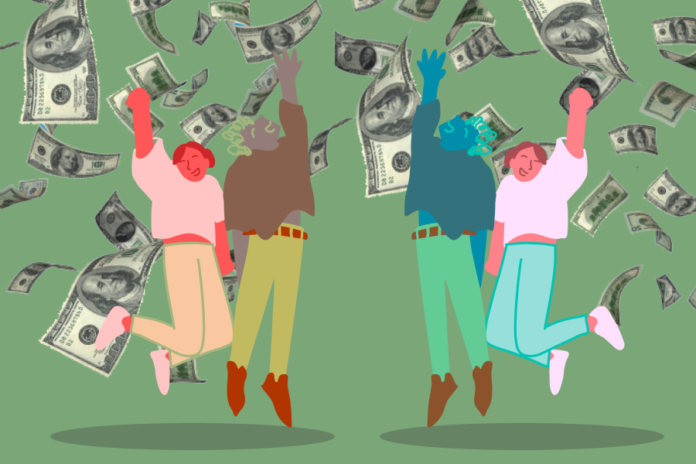Students discuss Biden’s debt relief plan and other potential solutions to the debt crisis
By LEVI GOLDSTEIN — features@theaggie.org
On Aug. 24, President Joe Biden announced a plan for student debt relief. As part of their 2020 campaign promises, the Biden-Harris administration paused federal student debt payments during the COVID-19 pandemic. Now, to combat the rising costs of higher education amid decreasing government support, the federal government will forgive up to $20,000 for Pell Grant recipients and $10,000 for other federal loans for low- and middle-income borrowers. The plan also extends the loan payment pause to the end of 2022 and outlines new rules that reduce the burden of paying back student loans over time based on individual income.
“[When] Joe Biden enacted the forgiveness for Pell Grant recipients — I almost cried when that happened,” Crystal Jimenez, a 2021 UC Davis graduate, said. “I didn’t believe it until he gave the speech.”
In his announcement speech, Biden said that higher education is a “ticket to a better life,” referring to its use as a tool for social mobility. He went on to express concern that it has become largely inaccessible as many Americans are saddled with huge amounts of debt, which is why loan forgiveness was a priority of the administration. For Jimenez, who is currently attending graduate school at Cal State Long Beach to earn a teaching credential, loans enabled her to attend school.
“I’m an only child from a low-income community,” Jimenez said. “[UC] Davis was offering me the most financial aid. I saw an opportunity and I jumped on it. […] I don’t regret getting [loans]. They helped me pay for rent because Davis is not cheap. […] That’s how I bought my food […] That was my survival money.”
The various bills extending relief to those with loans during the COVID-19 pandemic, including the temporary pause on debt payments, have been helpful for Jimenez.
“[Loans] didn’t really affect me [after college] because I graduated in June of 2021, and that was still during the pause, so I’ve never had to pay my loans back,” Jimenez said. “They’re always in my mind, that I have loans, but it’s not affecting my wallet yet.”
The student loan forgiveness bill will reduce the burden of loans for many students with federal aid. However, some are concerned that it isn’t the best solution for the college debt crisis. Jim Fein, a political science major at UC Davis and the executive director of Davis College Republicans, worries that debt cannot just be waived away.
“The debt is transferred,” Fein said. “The fact that someone owed money isn’t gone. The debt doesn’t just disappear, it just goes into a different category where the government is going to pay it off instead of students themselves. By the government paying, that’s anyone who pays taxes. They’re kind of thrown under the bus in this situation.”
Fein has no student debt; however, many of Fein’s friends who have taken out federal loans have the same mindset, arguing that despite the short-term financial benefits to them, the government shouldn’t be responsible for paying off their student loans.
Nevertheless, Fein acknowledged that college is a great financial burden for many students, and advocated instead for “lowering the cost of college.”
“At this point, [at] a lot of colleges, there’s more administrators than there are students,” Fein said. “Cutting some of those administrators would lower the cost of college, and therefore, tuition would be allowed to go down. Another way is student debt itself, actually. Student loans increase demand for college if you’re thinking of college as the product. When you have more student loans out there, more people want to go to college. It’s going to raise the cost of attendance because there are more people competing for the same number of spots.”
Some might see Biden’s debt relief plan as an imperfect solution to a larger issue, but this doesn’t negate the fact that debt relief is positively impacting many college students and graduates.
“[College] completely changed my life,” Jimenez said. “I’m extremely grateful and thankful for President Joe Biden to have erased federal loans for low-income [families] and pell grant recipients. […] A vast majority of my friends are now debt free.”
Written by: Levi Goldstein — features@theaggie.org











